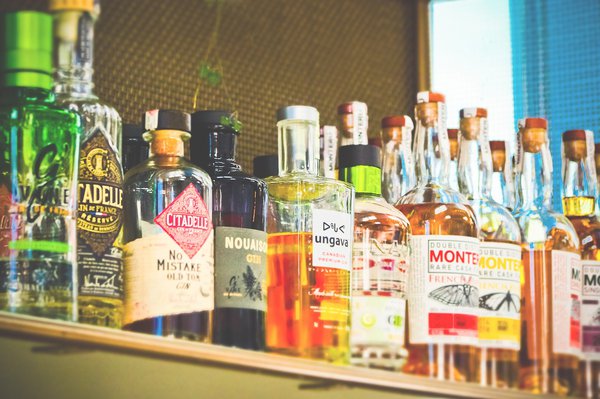Demand for transplants tied to alcohol-related liver inflammation has increased during the COVID-19 pandemic, a trend that corresponds to a surge in heavy drinking.
Both registrations for the national organ transplant waiting list related to alcoholic hepatitis and the number of deceased donor liver transplants for the inflammatory liver condition have been higher than their predicted volumes – by more than 50%, according a study conducted by Michigan Medicine researchers.
- MORE HEALTH
- Smokers who quit before age 45 nearly eliminate risk of dying from lung cancer
- Moderna says its COVID-19 vaccine is safe and effective in children ages 6-11
- Salami sticks sold at Trader Joe's linked to salmonella case in New Jersey
Though the study was not designed to determine a cause and effect relationship, it does provide evidence of "alcoholic hepatitis associated with known increases in alcohol misuse during COVID-19," said Maia S. Anderson, a general surgery resident at Michigan Medicine. "And it highlights the need for public health interventions around excessive alcohol consumption."
Alcoholic hepatitis most commonly develops in people who consume excessive alcohol on a regular basis. Heavy drinking can lead to permanent scar tissue in the liver and other long-term damage including liver failure, if left untreated.
Previous studies have highlighted the concerning trend of excessive alcohol consumption during the COVID-19 pandemic. A study from last fall found that adults over age 30 had increased their drinking frequencies and heavy drinking episodes compared to 2019.
Women, in particular, were drinking more. The overall frequency of alcohol consumption had increased by 14%, but it had jumped by 17% among women. Women also had increased their heavy drinking episodes – defined as having at least four drinks over two hours – by 41%.
A survey from September found that almost 1 in 5 Americans have been consuming unhealthy amounts of alcohol during the pandemic, USA Today reported, noting many Americans are using alcohol to manage pandemic-related stress.
Other studies have indicated that American are buying more alcohol and drinking more than they were pre-pandemic. U.S. dietary guidelines recommend no more than one drink a day for women and two for men.
The researchers of this latest study analyzed 51,488 new waiting list registrations and 32,320 deceased donor liver transplants from January 1, 2016 to January 31, 2021.
Between March 2020 and January 2021, there was a significant increase in the proportions of waiting list registration for alcoholic hepatitis compared to the same period from March 2019 to January 2020 – 227 of 9,311 registrations vs. 138 of 9,638 registrations. Similarly, the proportion of deceased donor liver transplants for alcoholic hepatitis rose from 103 of 6,263 to 185 of 6,162 over the same stretch.
There was also a correlation between increasing waiting list registrations and deceased donor liver transplants and a spike in alcohol sales.
The study was published in JAMA Network Open.


